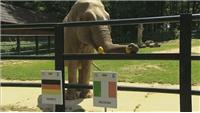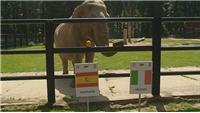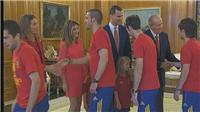
The new England manager is serious and classy so should he really be reading work by such a frisky author?

The new England manager Roy Hodgson has revealed a love of literature.
Refracted unflatteringly through the prism of modern football's revolving idiot-scope, there is a tendency for football managers to dwindle away to a single defining point. With England managers it is a case of shrinking, over many months, into a single easily bellowed caricature. Sven-Goran Eriksson rapidly became a kind of skinny-tied Nordic sex‑Pinocchio. Fabio Capello resembled by the end an unlikely fusion of disdainful high-class serial killer and the Cookie Monster from Sesame Street.
With Roy Hodgson there has been a generalised schism in the early getting‑to-hate-you period. Some have painted a picture of a cardboard‑blazered technocrat, a briefcase-fondling junior prefect with his shirt tucked into his underpants. For others Hodgson offers a more flattering reflection. He seems to have had some kind of extended gap year. And he speaks with a mildly perambulating acuity, like a Sunday night TV detective on the verge of draining his teacup and very politely arresting the local baronet for bludgeoning his footman to death with a tent mallet.
But it is neither his seriousness nor his classiness that marks Hodgson out. It is his love of the novels of John Updike. This is something I have yet to even start digesting and I'm not really sure I ever will. Updike. The England manager likes Updike. Not high-status art collectibles, or the gentle diversions of pulp fiction. Updike it is. This – sorry, Roy – is going to take a lot of getting used to.
There are various reasons why Hodgson's love of Updike is problematic, but primarily it is the sex. Updike is unremittingly frisky, peering into the marital bed with his spyglass, logging the tang and texture of each bodily secretion. In Couples, Updike has one of his characters make a passing comparison between his wife's vagina and the inside of a satin ballet slipper. Frankly, I'm just not sure I'm happy with an England manager reading this kind of thing.
From Updike Hodgson will have a working knowledge of the pleasures of mutual urination among middle-aged adulterers. This just feels wrong. Terry Venables knew nothing of such things while he was helming England's glorious near miss at Euro 96. Sir Alf Ramsey embalmed himself nightly inside a protective Brylcreemed sarcophagus. And with good reason. Like a prime minister tainted by sleaze, the moment it becomes clear any England manager has had sex, or thought about sex, or stood near someone who has had sex, his departure becomes an inevitability.
It isn't just sex, though. It is also those painfully sonorous Updike observations, a quality of distractingly sensual insight that, frankly, seems incompatible with the narrow-focused demands of being England football manager. Updike wrote the phrase "celebrity is a mask that eats into the face". He has written about the unbearable poignancy of seeing at a distance the back of your child's neck. He wrote: "Bech didn't trust anyone under thirty; the young now moved with the sacred and dangerous assurance of the old when he had been young."
How is it possible to enjoy all this and yet be capable of spending up to eight hours discussing exactly how offensive, generally and specifically, we're supposed to find John Terry?
On the plus side Updike deals with human ambiguity, with sozzled morality, the laureate of the dufus, the boor and the glutton. Perhaps this might be helpful. His greatest creation, Harry "Rabbit" Angstrom, leaves his pregnant wife, shacks up with a semi-prostitute and later sleeps with his son's wife and the mother of his grandchildren. Listening to disco on the radio in his car Harry muses: "Still, he liked Donna Summer best in the days when she was doing those records of a woman breathing and panting and sighing like she was coming." Yet, somehow, you keep on rooting for him. I'm not suggesting you need a thorough knowledge of the depths of vainglorious human depravity to succeed as England manager. But it helps.
I have imagined my own cautious revelation of shared Updikeism with an unguarded Hodgson. Perhaps there might be some chance meeting, in a stuck lift, or on a short-haul flight. Naturally, seamlessly, or perhaps with a forced and clunking urgency the subject of Updike might come up. So Roy. Don't you find the shift of narratorial voice in the Angstrom books jolting? "Well, to be honest …" Roy might begin, but not before I'm right back in with: "Of course at the heart of the Updike oeuvre we do still find that strangely punitive morality …" At which point Roy will be thinking to himself: "Hmmm, I'd always thought football hacks were a simple breed but there is something oddly insightful about this, what's his name, oh, he's still talking never mind, hmm, wonder if we get a meal on this …"
The problem facing the first openly "out" book-reading England manager is not so much author related as one of methodology. There have already been dark rumblings about Hodgson's rote learning systems, his academic style. The players, we hear, are easily bored, homework averse. There are echoes here of the scholarly Walter Winterbottom, England's first de facto manager, who met with open and noisy rebellion on first producing a chalkboard during team briefings ("Look Walter, let's stop all this guff!" Tommy Lawton was heard to shout).
But books can be useful, too. Updike wrote this about those moments where sport works as it should. Fat twentysomething Harry, walking home in his suit, finds his old schoolboy basketball touch on a backstreet court.
Roy! Bottle this! Syringe it into their ears! "That old stretched-leather feeling makes his whole body go taut, gives his arms wings … He sinks shots one-handed-two-handed underhand, flat-footed and out of the pivot, jump and set. Flat and soft the ball lifts. He feels liberated from long gloom. That his touch still lives in his hand elates him."
- Arbeloa: Spain must never change their style
- Wedding bells turn Iniesta's legs to jelly
- Pele: Brazil's 1970 World Cup winners better than Spain
- Pirlo: Only Spain are superior to Italy
- Spain disproved boring tag with empathic final win, insists Alonso
- Fernando Torres revels in Euro 2012 crown
- Italy can reach the final at World Cup 2014
- Johan Cruyff: I enjoyed Italy and I'm a big fan of Del Bosque's Spain
- De Gea & Mata named in Olympics squad
- Shevchenko: Euro 2012 was a success for Ukraine
Hot News
- Funny Balotelli!
- Spanish fans celebrate Euro Cup win
- That's German WAGS!
- The sexy female fans in Euro 2012
- Euro 2012: Spain fans celebrate victory
- Spain vs Italy in clash of the Euro WAGs
- Euro 2012 Final - Spain 4 : 0 Italy, Part 2
- Germany knocked out by Italy
- Natalia Siwiec blasts Sol and the BBC
- Coleen Rooney reveals her bikini body secrets
- Italy's fans celebrated wildly
- Euro 2012 Final - Spain 4 : 0 Italy, Part 1
| Rank | Team | W/D/L | Pts |
|---|
Cities & Stadiums
The Top 3 Teams of Previous Tournaments
| Year | Winners | Runner-up | Third place |
|---|---|---|---|
| 2008 | Spain | Germany | Russia / Turkey |
| 2004 | Greece | Portugal | Netherlands / Czech Republic |
| 2000 | France | Italy | Netherlands / Portugal |
| 1996 | Germany | Czech Republic | France / England |
| 1992 | Denmark | Germany | Netherlands / Sweden |
| 1988 | Netherlands | Soviet Union | Italy / West Germany |
| 1984 | France | Spain | Denmark / Portugal |
| 1980 | West Germany | Belgium | Czechoslovakia |
| 1976 | Czechoslovakia | West Germany | Netherlands |
| 1972 | West Germany | Soviet Union | Belgium |
| 1968 | Italy | Yugoslavia | England |
| 1964 | Spain | Soviet Union | Hungary |
| 1960 | Soviet Union | Yugoslavia | Czechoslovakia |




